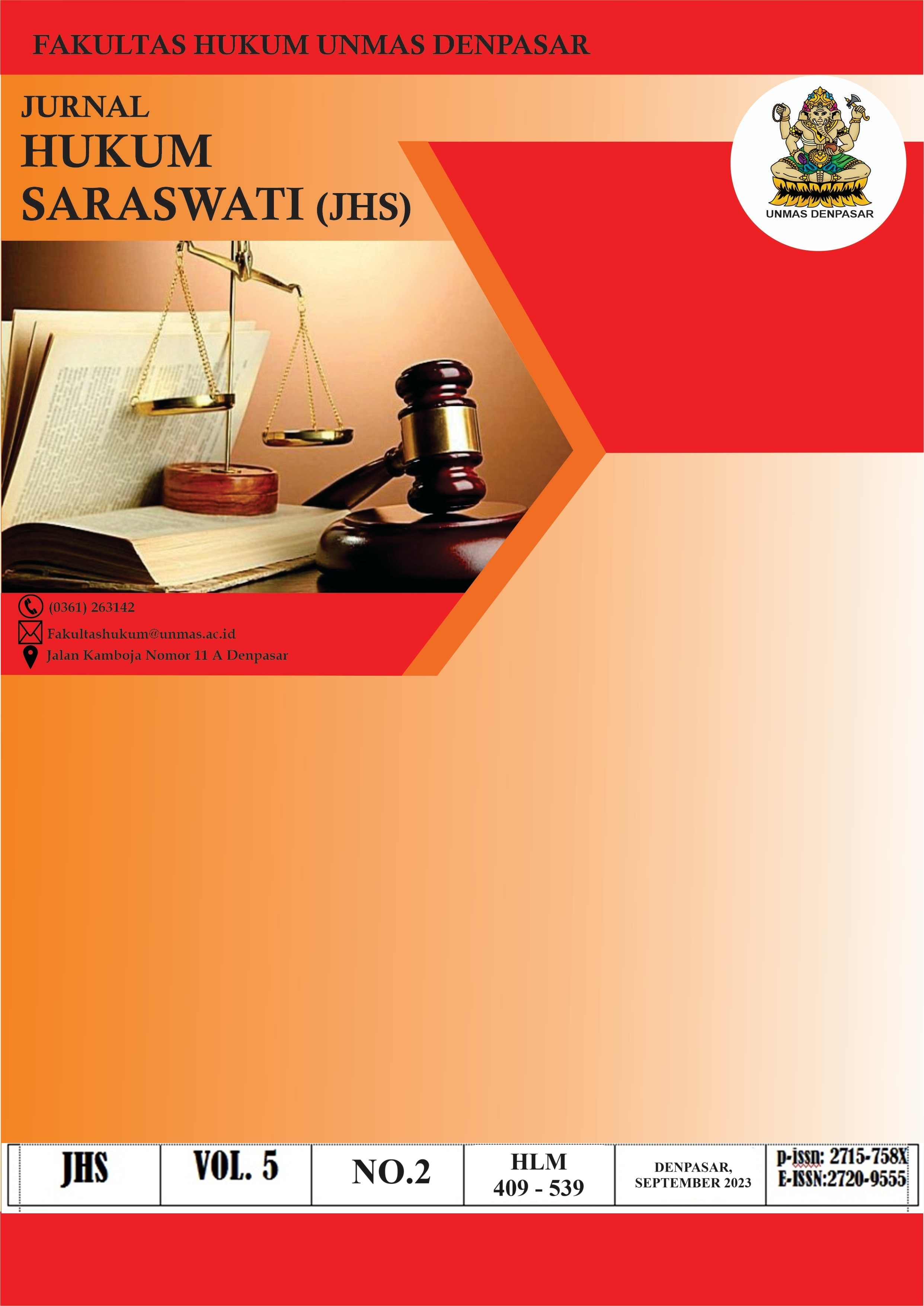PERLINDUNGAN HUKUM TERHADAP SAKSI PELAKU (JUSTICE COLLABORATOR) DALAM TINDAK PIDANA KORUPSI
Keywords:
Justice Collaborator, Legal Protection, CorruptionAbstract
Guarantees for the implementation of certain rights regulated in article PSK Law there is no explanation of how to implement the regulations and provide the rights listed and contained in article 5, resulting in witnesses unwilling and unwilling to give statements before the court. Formulation of the problem (1) how is the legal protection for the witnesses of the perpetrators (Justice Collaborator) in corruption? (2) What is the criminal sanction given to the witnesses of the perpetrators (Justice Collaborator) against criminal acts of corruption? In writing this thesis, the legal research used is normative legal research. Using analysis of legal interpretation in order to answer the problems raised. As for the legal protection for witnesses of the Justice Collaborator against corruption, it is deemed necessary, considering that to guarantee the security of the perpetrators themselves while giving their testimony and testimony in court. Criminal sanctions are given to witnesses of the Justice Collaborator against corruption, namely the Judge may consider the conviction of a criminal conviction for conditional probation and / or imprisonment in the form of the lightest imprisonment among other defendants found guilty, as well as providing special treatment for witnesses of the offender cooperate and get special handling also in detention, file inspection and security while giving testimony. Protection for witnesses of perpetrators can be seen as very necessary, given to guarantee the security of the perpetrators themselves while providing information and testimony in court. Judges may consider convicting them with consideration of imposing special conditional probation penalties and / or imposing penalties in the form of the lightest imprisonment among other defendants who are proven guilty and provide special treatment.
References
Hartanti Evi, 2012, Tindak Pidana Korupsi, Ed.2, Cet.4, Sinar Grafika, Jakarta.
Ilyas Amir dan Jupri, 2018, Justice Collaborator Strategi mengungkap tindak pidana korupsi, Cet.1, Genta Publishing, Yogyakarta.
Effendi Marwan, 2013, Korupsi dan Strategi Nasional Pencegahan serta Pemberantasanya, Referensi, Jakarta.
K Robert dan Irawan Aris, 2019, Hukum Perlindungan Saksi dalam Pemberantasan Tindak Pidana Korupsi, Ed.1, Cet.1, Thafa Media, Yogyakarta.
Muhadar, Abdullah Hadi dan Thamrin Husni, 2010, Perlindungan Saksi dan Korban Dalam Sistem Peradilan Pidana, Putra Media Nusantara, Surabaya.
Waluyo Bambang, 2016, Pemberantasan Tindak Pidana Korupsi (strategi dan optimalisasi), Sinar Grafika, Jakarta.
Wijaya Firman, 2008, Peradilan korupsi (Teori dan Praktek), Cet.1, Maharani Press, Jakarta.
JURNAL
Dewi Sakti Perwira Rosmala, 2016, Mekanisme Penyelesaian Tindak Pidana Korupsi oleh Lembaga Negara Komisi Pemberantasan Korupsi (KPK), Volume 10, Nomor 2.
Rahmayanti, 2017, Sanksi Hukum terhadap Pelaku Tindak Pidana Korupsi Berdasarkan Hukum Positif dan Hukum Islam, Volume 10, Nomor 1, Universitas Prima Indonesia.
Downloads
Published
How to Cite
Issue
Section
License
- Copyright notice
Authors who publish with this journal agree to the following terms:
- Authors retain copyright and grant the journal right of first publication with the work simultaneously licensed under aCreative Commons Attribution License that allows others to share the work with an acknowledgement of the work's authorship and initial publication in this journal.
- Authors are able to enter into separate, additional contractual arrangements for the non-exclusive distribution of the journal's published version of the work (e.g., post it to an institutional repository or publish it in a book), with an acknowledgement of its initial publication in this journal.
- Authors are permitted and encouraged to post their work online (e.g., in institutional repositories or on their website) prior to and during the submission process, as it can lead to productive exchanges, as well as earlier and greater citation of published work (See The Effect of Open Access).







